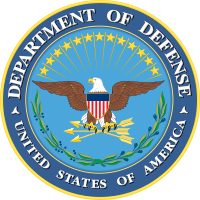School Improvement
Continuous school improvement is an embedded behavior rooted in the school's culture that constantly focuses on the conditions, processes, and practices that improve teaching and learning. Schools use student performance results and analyze data from various interwoven components to develop plans and implement improvement actions to drive education quality and improved student outcomes.
DoDEA Blueprint Goals
Goal 1: Student Excellence
Challenge and prepare each student to maximize his or her academic growth and well-being for college, career, and life.
Goal 2: School Excellence
Develop and sustain each school to be high-performing within a culture of innovation, collaboration, continuous improvement and caring relationships.
Goal 3: Talend Excellence
Recruit, develop, empower, and retain a high-performing workforce that reflects our student population.
Goal 4: Organizational Excellence
Building an enduring, accountable, and responsive organization that provides appropriate resources, direction, and support to accomplish the Mission.
Region Goal
Access to Excellent Instruction for ALL Students!
Europe as a High- Reliability Organization (HRO)
During the months of January-June 2024, this RAP was collaboratively built through numerous Analyze and Adjust sessions with the Director for Student Excellence, Superintendents, Community Superintendents, and the CIL Team. It represents our collective goals for student achievement and instruction throughout the Europe Region. This is OUR Region Action Plan (RAP) to ensure Europe is a high-reliability organization to achieve our region Goal.
Netzaberg ES Continuous School Improvement Goals
SMART Objective for Literacy: By the end of SY 2025-2026, grades 3-5 will decrease the percentage of students in the did not meet or partially met performance levels by 5% over two years from 25% to 20% and increase the percentage of students scoring at the met or exceeded performance levels by 5% over two years from 49% to 54% as reported on DoDEA's CCRSL Summative Assessment.
SMART Objective for Math: By the end of SY 2025-2026, grades 3-5 will decrease the percentage of students that not meet or partially meet performance levels by 5% over two years from 17% to 12% and increase the percentage of students scoring at the met or exceeded performance levels by 5% over two years from 51% to 56% as reported on DoDEA's CCRSM Summative Assessments.
Netzaberg ES Core Beliefs
We believe...
- ...in continuous growth as a school community with professional development and positive support.
- ...that we need to continue to grow as a community, and understand we all make mistakes.
- ...our school community is stronger because of our unique backgrounds and points of view.
- ...we will meet students where they are by differentiating instruction in order to help students reach proficiency.
- ...in working with stakeholders to develop a trusting relationship.
- ...in the value of expanding our understanding and that teachers must model this as the lead learners.
- ...in developing independent and creative thinkers.
Netzaberg ES Vision
Netzaberg Elementary School is committed to success for ALL students!
Netzaberg ES Mission
To Provide an Exemplary Education that Inspires and Prepares all DoDEA Students for Success in a Dynamic, Global Environment.
DoDEA Accreditation
Accreditation is the act of granting credit or recognition (especially with respect to an educational institution that maintains suitable standards). Educational accreditation is a type of quality assurance process under which services and operations of educational institutions or programs are evaluated by an external agency to determine if applicable standards are met. If standards are met, accredited status is granted by the agency.
Cognia is the accreditation agency for all DoDEA schools and the world's largest education community. As the global leader in advancing education excellence through accreditation and school improvement, Cognia brings together more than 100 years of experience and the expertise of three United States-based accreditation agencies - the North Central Association Commission on Accreditation and School Improvement (NCA/CASI), Northwest Accreditation Commission (NWAC), and the Southern Association of Colleges and Schools Council on Accreditation and School Improvement (SACS/CASI). Accreditation is pivotal to leveraging education quality and continuous improvement.
Detailed accreditation information is provided on the DoDEA Accreditation page.
Comprehensive Assessment System
In conjunction with the implementation of the College and Career Ready Standards (CCRS), DoDEA is implementing the Comprehensive Assessment System (CAS) that includes all of the assessments that are administered system-wide within DoDEA. These include the PSAT, Advanced Placement, NAEP, and College and Career Ready Standards (CCRS) assessments. All assessments included in the DoDEA Comprehensive Assessment System support student learning, provide information for decision makers concerning instructional programs and services, and inform parents. DoDEA is committed to student achievement and assessments that raise the bar for the students to ensure they are on the path to success.










